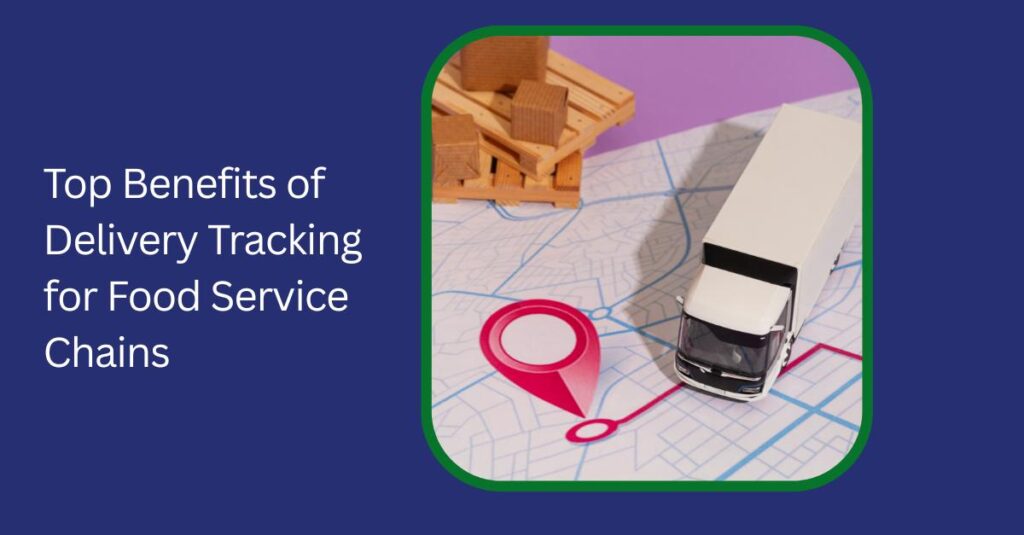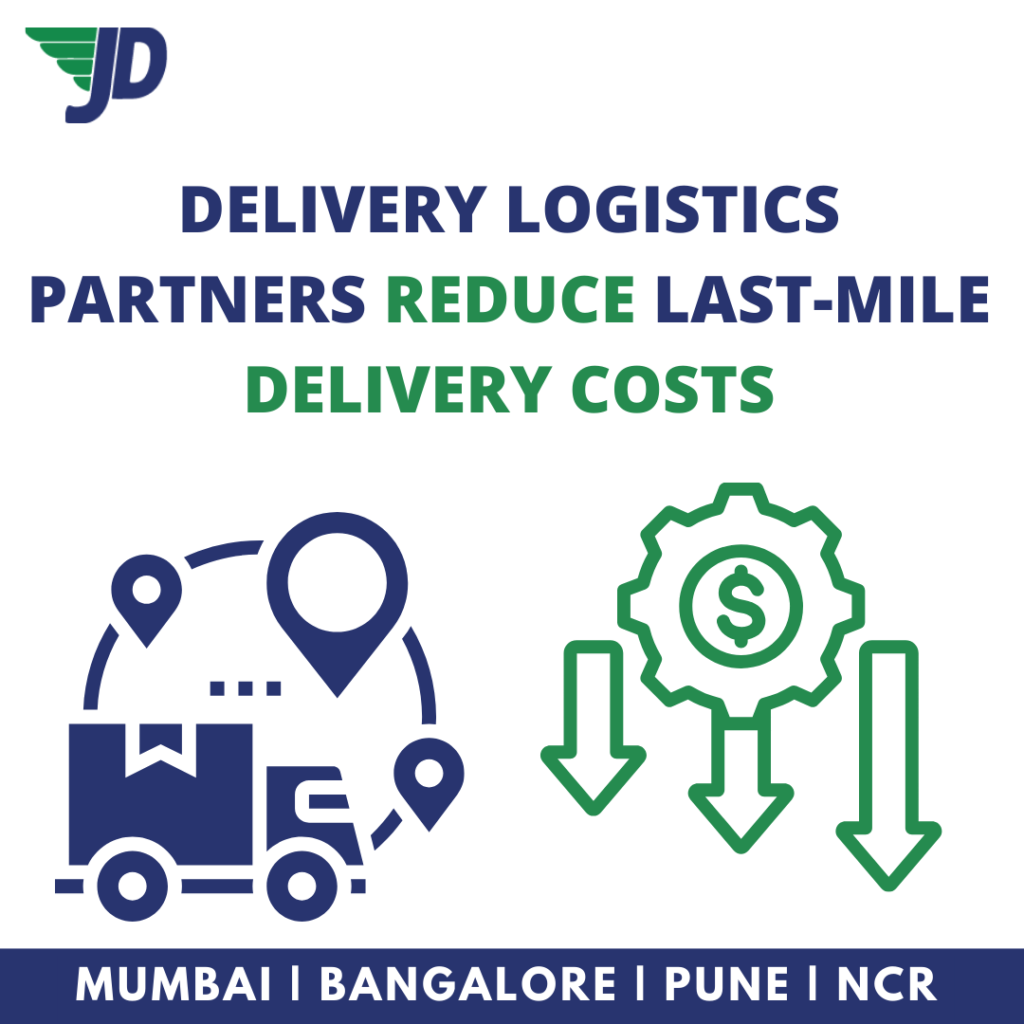The integration of delivery tracking systems has fundamentally reshaped operational strategies, propelling businesses to new heights of efficiency and customer satisfaction. This innovative technology empowers food service chains to monitor orders in real-time, optimize delivery routes, and glean valuable insights for process enhancement. By ensuring prompt and precise deliveries, companies can cultivate strong customer relationships, bolster brand loyalty, and drive revenue growth. Embracing delivery tracking is no longer a choice but a strategic imperative in an era where consumer expectations and market competition continue to escalate. The transformative impact of these systems transcends mere convenience, offering a competitive edge that is essential for success in the modern food service industry.
In the fast-paced world of food service chains, the importance of delivery tracking cannot be emphasized enough. With consumers increasingly valuing convenience and efficiency, a reliable system for tracking deliveries is essential for the success and competitiveness of any food service establishment.
- Ensuring Timely Deliveries and Maintaining Food Quality:
A robust delivery tracking system is instrumental in guaranteeing timely deliveries and upholding food quality standards. By leveraging real-time tracking of delivery vehicles, food service chains can optimize routes, proactively address potential delays, and ensure that orders are promptly delivered to customers. This not only enhances customer satisfaction but also plays a crucial role in preserving the freshness and quality of the food being transported.
- Enhancing Customer Satisfaction Through Real-time Tracking:
Real-time tracking offers customers visibility into the status of their orders, empowering them with information on delivery progress and estimated arrival times. Moreover, the ability to communicate with delivery personnel in real-time enhances customer engagement and satisfaction. Providing customers with this level of transparency not only fosters trust but also elevates the overall service experience, leading to improved satisfaction levels and increased customer loyalty.
- Managing Temperature-Sensitive Deliveries Efficiently:
For food service chains handling perishable or temperature-sensitive items like fresh produce, dairy, or prepared meals, maintaining proper temperatures during transportation is paramount. Delivery tracking systems with integrated temperature monitoring capabilities enable businesses to monitor and control temperature conditions throughout the delivery process. By ensuring that such deliveries are handled under optimal conditions, food safety standards are upheld, and the risk of spoilage or contamination is minimized.
- Optimizing Delivery Routes and Resource Allocation:
In addition to ensuring timely deliveries, an effective delivery tracking system allows food service chains to optimize delivery routes and allocate resources more efficiently. By analyzing data on delivery times, traffic patterns, and order volumes, businesses can streamline their operations, reduce delivery costs, and minimize environmental impact through route optimization. This not only benefits the bottom line but also contributes to sustainability efforts and operational scalability.
- Enhancing Inventory Management and Demand Forecasting:
Beyond the immediate benefits of efficient deliveries, a sophisticated tracking system plays a vital role in inventory management and demand forecasting. By tracking delivery patterns, order frequencies, and customer preferences, food service chains can enhance their inventory control, minimize wastage, and accurately predict demand fluctuations. This data-driven approach not only optimizes supply chain management but also enables businesses to respond proactively to market trends and consumer demands.
The implementation of a comprehensive delivery tracking system is a cornerstone of operational excellence for food service chains. By improving operational efficiency, enhancing customer experience, safeguarding the quality of delivered food, optimizing resource utilization, and strengthening inventory management practices, a reliable tracking system not only provides a competitive edge but also addresses the essential needs of the modern food service industry. Embracing advanced tracking technologies is not merely a trend but a strategic imperative for food service chains looking to thrive in today’s competitive landscape.
Benefits of Delivery Tracking for Food Service Chains
In the competitive landscape of the food service industry, leveraging technology to streamline operations and enhance customer experience has become crucial. One such technological advancement that has revolutionized the food service chains is delivery tracking. This blog section will delve into the various benefits that delivery tracking offers to food service chains.
Improved Operational Efficiency and Logistics Management
Delivery tracking provides real-time visibility into the movement of orders, enabling food service chains to optimize their delivery routes and schedules. By tracking delivery vehicles, managers can make informed decisions to reduce delivery times and improve overall operational efficiency. This not only saves time but also reduces fuel consumption, leading to cost savings and a greener operation.
Enhanced Food Safety and Quality Control
With delivery tracking, food service chains can monitor the temperature and handling of food during transit. This ensures that food safety standards are maintained, and the quality of the delivered products remains uncompromised. By implementing temperature-sensitive monitoring systems, food chains can prevent food spoilage and guarantee that only fresh and safe food reaches the customers, thus minimizing waste and enhancing customer satisfaction.
Cost-Effectiveness and Accurate Invoicing
Delivery tracking helps in accurately recording the time of delivery and the condition of the products upon arrival. This data can be used to generate accurate invoices, reducing billing disputes and ensuring that both the food service chain and the customer are on the same page regarding the services provided. Implementing automated invoicing systems can further streamline the billing process, saving administrative time and improving overall financial management.
Building Trust and Reliability Among Customers
By offering delivery tracking, food service chains instill trust and reliability among their customers. Customers appreciate transparency and being able to track their orders in real-time. This transparency builds loyalty and encourages repeat business, ultimately contributing to the long-term success of the food service chain. Additionally, leveraging delivery tracking data for personalized marketing initiatives can further enhance customer engagement and brand loyalty, creating a strong competitive edge.
The incorporation of delivery tracking technology brings a myriad of benefits to food service chains, ranging from operational efficiency to customer satisfaction. Embracing this technology not only sets a food service chain apart from its competitors but also ensures sustainable growth and success in the dynamic food industry. The continuous advancement of delivery tracking systems offers endless possibilities for food service chains to innovate and meet the evolving demands of their customers, solidifying their position as industry leaders.
Case Studies: Successful Implementations of Delivery Tracking in Food Service Chains
One notable case study involves a leading F&B brand that partnered with JustDeliveries to enhance their delivery operations. By leveraging JustDeliveries’ delivery tracking services, the F&B brand experienced a significant boost in operational efficiency and customer experience. The real-time tracking and monitoring systems provided by JustDeliveries allowed the brand to streamline their delivery processes, optimize routes, and ensure timely deliveries. This resulted in reduced delivery times, improved order accuracy, and enhanced operational visibility. Additionally, the electronic proof of delivery feature facilitated smoother invoicing and enhanced accountability. As a result, the F&B brand witnessed improved operational efficiency, reduced costs, and increased customer satisfaction, showcasing the positive impact of JustDeliveries’ delivery tracking services.
Another compelling example of successful delivery tracking implementation in the food service industry is the case of a global fast-food chain that revolutionized its delivery services through advanced tracking technology. By partnering with a tech-driven logistics company, this fast-food chain implemented a state-of-the-art delivery tracking system that not only optimized their delivery routes but also provided customers with real-time updates on their orders. This innovation led to a remarkable improvement in delivery speed, accuracy, and overall customer experience. Customers could track their orders from the moment they were placed until they reached their doorstep, resulting in heightened satisfaction and loyalty.
Moreover, the integration of delivery tracking solutions in food service chains has not only enhanced operational efficiency but also improved food safety standards. By leveraging tracking technologies that monitor temperature-controlled environments during transit, restaurants can ensure that food items are delivered under optimal conditions, preserving quality and freshness. This level of transparency in the delivery process not only builds trust with customers but also ensures compliance with regulatory standards, making it a win-win situation for both the business and its patrons.
The success stories of F&B brands and fast-food chains that have embraced delivery tracking services underscore the transformative impact of technology on the food service industry. By prioritizing efficiency, accuracy, and customer satisfaction through innovative tracking solutions, these establishments have not only streamlined their operations but have also set a new standard for excellence in food delivery services.
Conclusion
Implementing delivery tracking systems can significantly benefit food service chains by improving operational efficiency, enhancing customer satisfaction, and increasing overall profitability. By leveraging technology to track orders in real-time, businesses can streamline delivery operations, minimize errors, and provide a more transparent and reliable service to their customers. Embracing delivery tracking not only meets the growing demands of the industry but also positions food service chains for long-term success in a competitive market.

Mansi Mahansaria
I’m Mansi Mahansaria, CEO and Founder of JustDeliveries, a B2B logistics company specializing in the food and beverage sector. With a background in Chemical Technology (ICT Mumbai), an MBA (FMS Delhi), and experience at IDFC Private Equity and Tata Group, I’ve built a plug-and-play logistics network helping F&B brands scale efficiently. I also share insights on entrepreneurship and logistics at industry and academic events.






